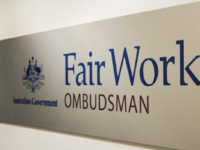The Fair Work Ombudsman (FWO) has completed audits at 45 sushi businesses in New South Wales, Queensland and the Australian Capital Territory, finding breaches of workplace laws at 39 businesses.
Inspectors visited 20 sushi businesses in the NSW’s Hunter/Central Coast region, 13 in NSW’s Coffs Harbour and North Coast region, seven in Canberra and five in South-East Queensland, finding almost 90 per cent of the business non-compliant.
Audits discovered underpayments across 37 business, with 29 businesses breaching record-keeping and pay slip laws.
As a result, inspectors have recovered $746,203 for 397 workers related to underpayments, mainly stemming from minimum ordinary hourly rates, casual loading, penalty rates and overtime.
The inspectors issued nine infringement notices, totalling $17,850 in fines, 15 formal cautions and six compliance notices, with the FWO commencing legal action against six sushi businesses with more serious alleged breaches of workplace laws.
In two of the cases, the Court ordered combined penalties of $136,250 following the underpayment of young Korean workers and the use of false records at outlets in Brisbane and Ballina.
These matters involve further recoveries of $17,635 for five workers, however three matters, including the alleged underpayment of some young and migrant workers across sushi businesses in Newcastle and the NSW Central Coast and Canberra remain before the court.
The latest round of audits follow a consistent pattern of diligence from the FWO, after underpayment was found at a number of sushi restaurants around Australia over the past 18 months.
In August last year, the FWO commenced legal action against the operators of three ‘Tokyo Sushi’ franchise outlets in NSW for allegedly underpaying workers more than $70,000.
More recently, the Court found Lydia Chang was involved in the underpayment of the workers at Sushi Revolution, including providing false and misleading records to the FWO.
FWO Sandra Parker said the renewed focus on compliance regulation checks within the industry has been the result of an increase in requests for assistance from vulnerable workers in sushi outlets.
“Our activity identified that sushi eateries often employ vulnerable workers including young workers, migrant visa holders and those from non-English-speaking backgrounds. The Fair Work Ombudsman has a strong focus on protecting the rights and entitlements of these vulnerable workers as they may not be fully aware of their workplace rights or are reluctant to complain,” Parker said.
“While the Fair Work Ombudsman never excuses employers who underpay their workers, we know that labour represents a significant cost in the food industry. Although everybody loves cheap sushi, perhaps we should ask ourselves – is what I’m paying enough to cover workers’ minimum wages and entitlements?”
“We were particularly disappointed with the high level of record-keeping breaches discovered in the activity and will conduct follow-up checks at non-compliant sushi outlets. New laws mean employers face significantly higher penalties for serious breaches and we have no tolerance for employers that give inspectors false records.”
















